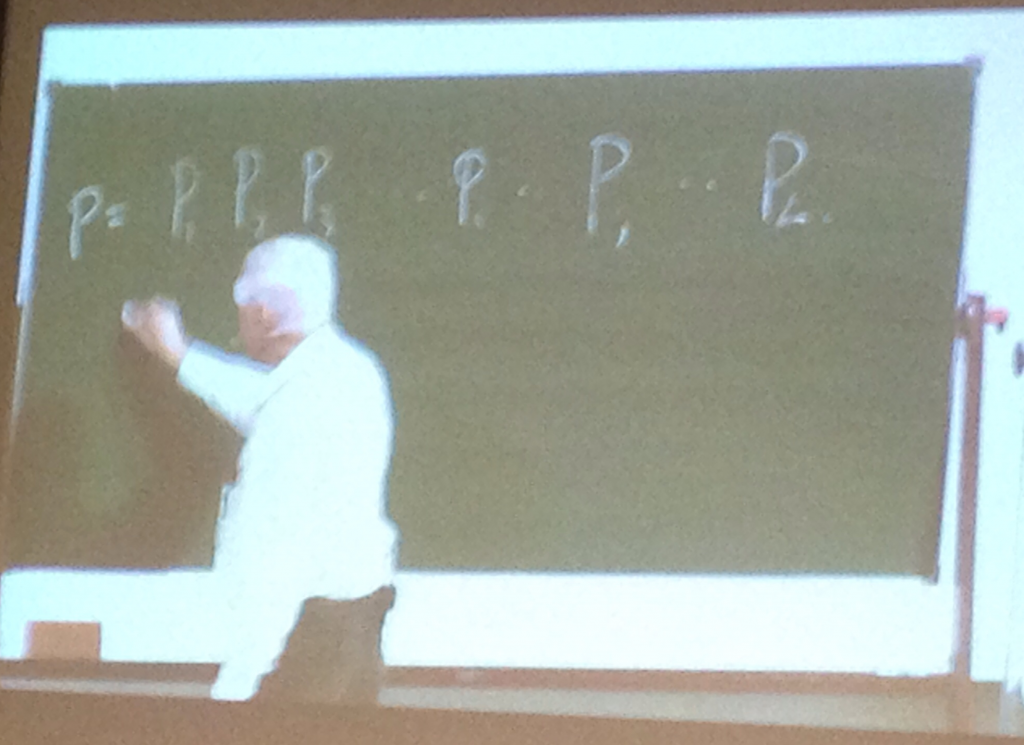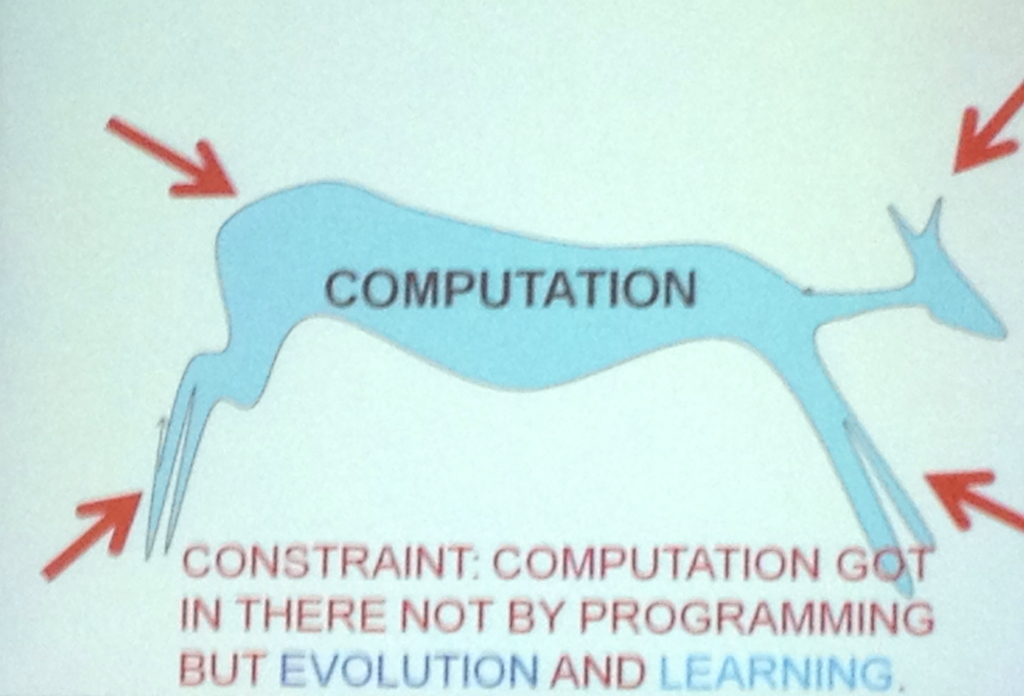Notes from Monday: If you are a young scientist, …
BLOG: Heidelberg Laureate Forum

“If you are a young scientist, put yourself in the environment of a real genius. You will learn so much, you never expected.”
Ed Feigenbaum during the afternoon panel discussion.
“Evidence from pure thought: No-one has succeeded in finding a counterexample.”
Quote out of Leslie G. Valiant’s presentation about ‘Learning as the Source of Life’s Phenomena’
3 Stages of information revolution
Invention of Writing 3000BCE
Invention of Printing 1450 century
Invetion of Computers 1950 – passive knowledge into active knowledge.
Presented by Raj Reddy
‘If you can’t fix it, feature it’
Practical way by Curtis T. McMullen, who now talks about Billiards and Moduli Spaces
Cutting Sequences on the Double Pentagon, explained through dance from Diana Davis on Vimeo.
McMullen showed Diana Davis PhD-Thesis: Cutting Sequences on the Double Pentagon, explained through dance – as an example of new and nice forms for presentations

CC Beatrice Lugger
Stephen Smale explained the mathematics behind protein folding on the blackboard
1977 linear time logic
a ‘a is true now’
Xa ‘a is true in the neXt state’
Fa ‘a will be true in the Future’
Ga ‘a will be Globally true in the future’
aUb ‘a will hold true Until b becomes true’
Edmund Melson Clarke – explained: “Model checking forwards and backwards.”

Slide by Leslie Valiant – presented during his talk at #hlf13
“You can’t change your DNA by having a certain experience. This is not efficient enough.”
Out of Leslie G. Valiant’s talk about ‘Learning as the Source of Life’s Phenomena’
“If a new technology comes in, it does not have to replace the old ones. The master shall not become the slave of his servants.”
Alan Kay, panel discussion
“It is hard to imagine an area, where computers haven’t had an impact.”
John Hopcroft, panel discussion
„If you find a red-hot area, go somewhere else. Find an area with few people and close to the frontier of knowledge.“
Ed Feigenbaum, panel discussion

